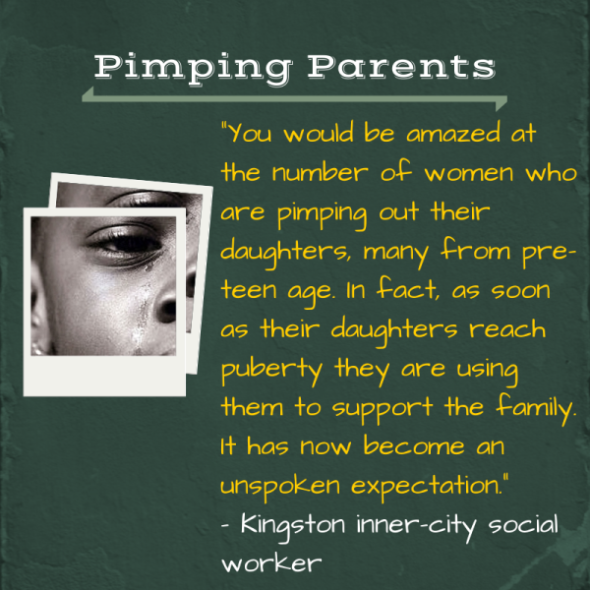Some Jamaican men have egos the size of the Blue Mountain Range. This particular one that I will speak about is the reflection of a large group of Jamaican men who verbally abuse women who don’t want to speak to them.
I have heard of men who take it upon themselves to disrespect women who they call to on the street, because the women don’t give them the time of day. But who would think that this would happen to me!
I was minding my own business on a class trip on Friday, and trying to get in line to board a #78 JUTC bus in Downtown, Kingston to get home. I mean, we Jamaicans all know how hot Downtown is after midday and the bus provides air conditioning, so yes my main priority was to pay my fare to get on the bus as quickly as possible. Then suddenly, from out of nowhere a vendor or passerby (not sure of his title) starts screaming on the top of his voice.
“Yow browning, (Jamaican term for girls of a light complexion) you wid di glasses on yuh head, yuh tink mi a beg yuh nothing?!”
The crowd started looking around for this mysterious ‘browning’ and l realized everyone was staring at me. In my defense, I usually respond to anyone that hails (says greetings to) me on this street because my mother told me once that anything can happen to me on the street and I might need assistance from these same strangers. So I would have responded if I had heard him earlier. He continued to shout angrily, but it was my turn to climb the steps of the bus to give my fare to the driver so I thought, let me just leave this man alone and go home. But apparently, that made him even angrier.
Big Feet
” Yuh foot dem big like!” He jeered, as if to get my attention.
I noticed all my classmates and the rest of the crowd was now staring at my feet. Some of them laughed and I continued into the bus. I wear size 7 sometimes 7.5 footwear so I don’t consider my feet big. I just assumed he still wanted to get my attention. I sat down at one of the windows and the man still kept his insults going.
” All you, mi woulda neva married you cause your foot dem too big, mi couldn’t buy shoes fi fit dem”
At this point I started laughing because I thought this man was crazy. For the entire ride back to Papine, which seemed like forever, the incident was the sweet topic of discussion. My friends had a blast reenacting the man and saying who else they would tell about what happened. It was then I was told that he had been calling to me for a while before he went from ‘zero to one hundred real quickly’.
The Moral of the story
I believe if a man calls to a woman whether she hears him or not, he should move on with his life and act like a mature individual. There is no need to verbally abuse someone because they don’t want to speak to you. Men ask yourself this the next time you think of disrespecting a woman, would you like a man to verbally abuse your daughter if she refuses to talk to him?



